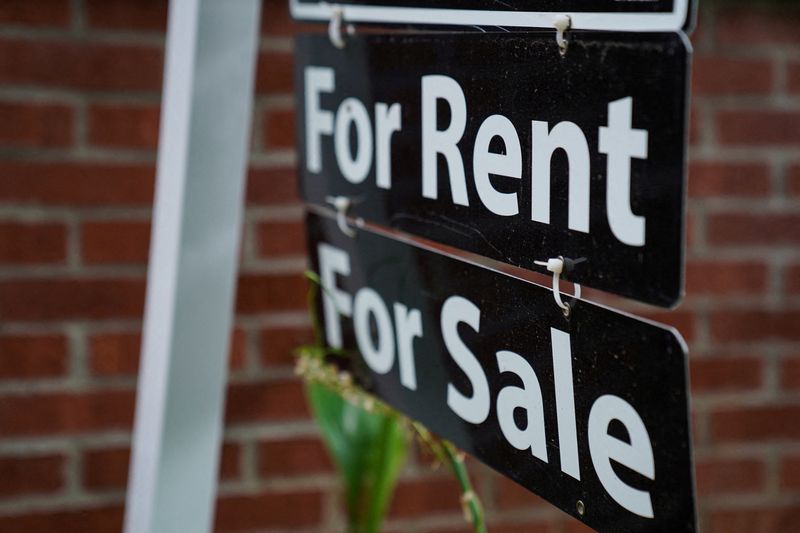(Reuters) - U.S. existing home sales rose more than expected in July, reversing four consecutive monthly declines, as improving supply and declining mortgage rates offered hope that activity could rebound in the months ahead.
Home sales rose 1.3% last month to a seasonally adjusted annual rate of 3.95 million units, the National Association of Realtors said on Thursday. Economists polled by Reuters had forecast home resales would edge up to a rate of 3.93 million units.
Home resales, which account for a large portion of U.S. housing sales, declined 2.5% on a year-on-year basis in July. The median existing home price jumped 4.2% from a year earlier to $422,600. Home prices increased in all four U.S. regions.
Home resales are counted at the close of a contract. Sales in July likely reflected contracts signed in the prior two months, when the average rate on the popular 30-year fixed-rate mortgage was hovering around 7.0%.
The average rate on a 30-year fixed-rate mortgage was 6.49% last week, near a 15-month low and more than half a percentage point lower than the same time last year, data from mortgage finance agency Freddie Mac showed. It has eased from a six-month high of 7.22% in early May amid signals from the Federal Reserve that it will deliver a long-awaited interest rate cut in September.
"Despite the modest gain, home sales are still sluggish," said Lawrence Yun, the NAR's chief economist. "But consumers are definitely seeing more choices, and affordability is improving due to lower interest rates."
Sales rose 1.1% in the densely-populated South. They were unchanged in the Midwest, which is considered the most affordable region. Sales advanced 4.3% in the Northeast and increased 1.4% in the West.
INVENTORY RISES AGAIN
Housing inventory increased 0.8% to 1.33 million units last month. Supply jumped 19.8% from one year ago.
A surge in insurance premiums across the country as weather-related claims rise is forcing some homeowners to put their properties on the market.
Nonetheless, entry-level homes remain in short supply and there is not enough new construction. The government reported last week that single-family homebuilding dropped to a 16-month low in July, likely weighed down by Hurricane Beryl and an oversupply of new houses, while permits for future construction also edged down. Many homeowners have mortgage rates under 5%.
At July's sales pace, it would take 4.0 months to exhaust the current inventory of existing homes. That was up from 3.3 months a year ago. A four-to-seven-month supply is viewed as a healthy balance between supply and demand.
Properties typically stayed on the market for 24 days in July compared to 20 days a year ago. First-time buyers accounted for 29% of sales versus 30% a year ago.

That share remains below the 40% that economists and realtors say is needed for a robust housing market.
All-cash sales made up 27% of transactions, up from 26% a year ago. Distressed sales, including foreclosures, represented 1.0% of transactions, virtually unchanged from a year ago.